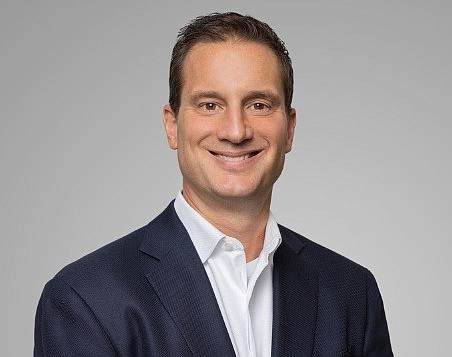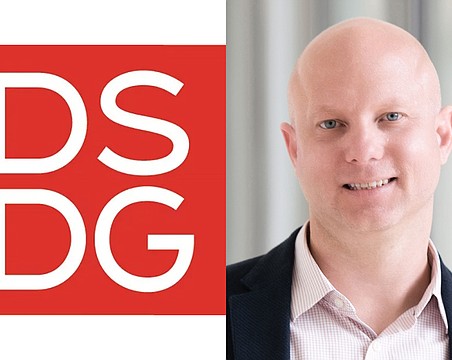No. 1 retail expert
retail by Janet Leiser | Senior Editor
David Conn battles against the tide of government regulation and taxes to be the best nationally.
No. 1 retail expert David Conn, a Gulf Coast commercial broker who provides real estate services to some of the nation's largest chains, was named the top retail professional in the country by C.B. Richard Ellis Inc.
Considering the publicly held company has 24,000 employees and serves some of the nation's richest retail markets in the country, being named No. 1 is impressive.
Conn closed $300 million in leasing deals in 2006 - by himself.
To hear Conn talk, though, he received the 2006 retail professional of the year award because of luck - not talent or hard work.
"I guess I've had a lot of luck," the 47-year-old Conn says when asked the secret to his success.
He joined the company's Tampa office 20 years ago and he has been among the company's top five brokers four times, twice grabbing the No. 2 spot. One of seven company directors in the United States and Canada, he's in charge of the Southeast Retailers Service Group.
His specialty: big box retailers. He exclusively represents Target and Kohl's on Florida's West Coast, as well as Lifestyle Family Fitness, Staples and AMC Theaters throughout the state.
Conn handles ground-up development of retail. "If it has anything to do with a shopping center, anyplace you'd shop, eat or bank, I do it," he says.
He wouldn't disclose the dollar value of deals completed in 2006, but he says the recognition was based on the amount of his commission.
One of his largest recent projects was the Gulf Coast Town Center at Interstate 75 and Alico Road in Fort Myers. Conn leased about 850,000 square feet to anchor tenants there, including SuperTarget, JC Penney, Belk Department Stores, Costco, Bass Pro Shops and Regal Cinemas.
The center, owned by the The Richard E. Jacobs Group, is the largest on the state's West Coast with 1.7 million square feet.
One of Conn's newest projects is another Jacobs Group development, this one in Pasco County, just north of Tampa. Conn already has contracts with some anchor tenants for Cypress Creek Town Center, a one million-square-foot regional center at I-75 and State Road 56.
Jacobs Group expects to break ground on Cypress Creek this summer and have a grand opening in October 2008. Conn says he can't disclose the names of the anchor tenants, until after public announcements are made.
So, how does Conn, who represents both retailers and developers, find anchor tenants for a center?
Experience helps.
"I know who's missing in the market," Conn says.
Of course, then there are demographic studies to find out who's likely to shop at the center. Each retailer looks for different patterns, he says.
The good news for Conn is the retail market remains strong even though housing is slow. "In the perfect world, retail follows houses," he says.
In the Tampa Bay area, businesses new to the area, such as Dick's Sporting Goods. Kohl's, Ashley Furniture and LA Fitness, are continuing to expand, he says.
"It's growing crazy from Hernando County to Naples," Conn says.
Rental rates per square foot range from as low as $14 to the mid $20s, he says. Newer centers, which cost more to build, charge higher rates and smaller tenants pay more per square foot than anchor tenants, which attract shoppers to the center.
Government problems
One of Conn's biggest problems, he says, is escalating construction costs, which include rising impact fees throughout the Gulf Coast counties. Owners obviously pass those costs onto tenants in the form of higher rent.
Obtaining government approval for a development is a lengthy and costly process that varies from one county to another and from one planner to another, Conn says.
"There doesn't seem to be any consistency to what they're looking for," Conn says.
One of the worst counties is Collier County, he says, adding, "But they're all awful."
Most of the agencies are understaffed, he says. And most of the counties don't have enough capital in their coffers to build the infrastructure needed to catch up with housing growth.
Then along comes a developer who wants to build a shopping center.
"It's an easy target to hit a developer's building," Conn says. "They tell you you have to do this, you have to do that. They kind of got you good."
He calls it an unfair, inequitable process.
"Impact fees have been around a long time," Conn says. "But in the last four or five years, it went crazy."
He's not blaming government workers, he says.
"They're in a quandary. How do they pay for all the roads, schools, fire departments and parks, they need?"
If a government tries to build roads in advance, taxpayers tell them they're crazy, he says. "Nobody is out here, but the cows" is what'd they hear.
In addition, he says, there are a lot of well-intentioned guidelines in place that don't work.
"That frustrates a lot of developers too," he says. "Not only is it hard to get a hold of people, they don't always get positive feedback or help. They should work more with developers to offer solutions and compromises."





